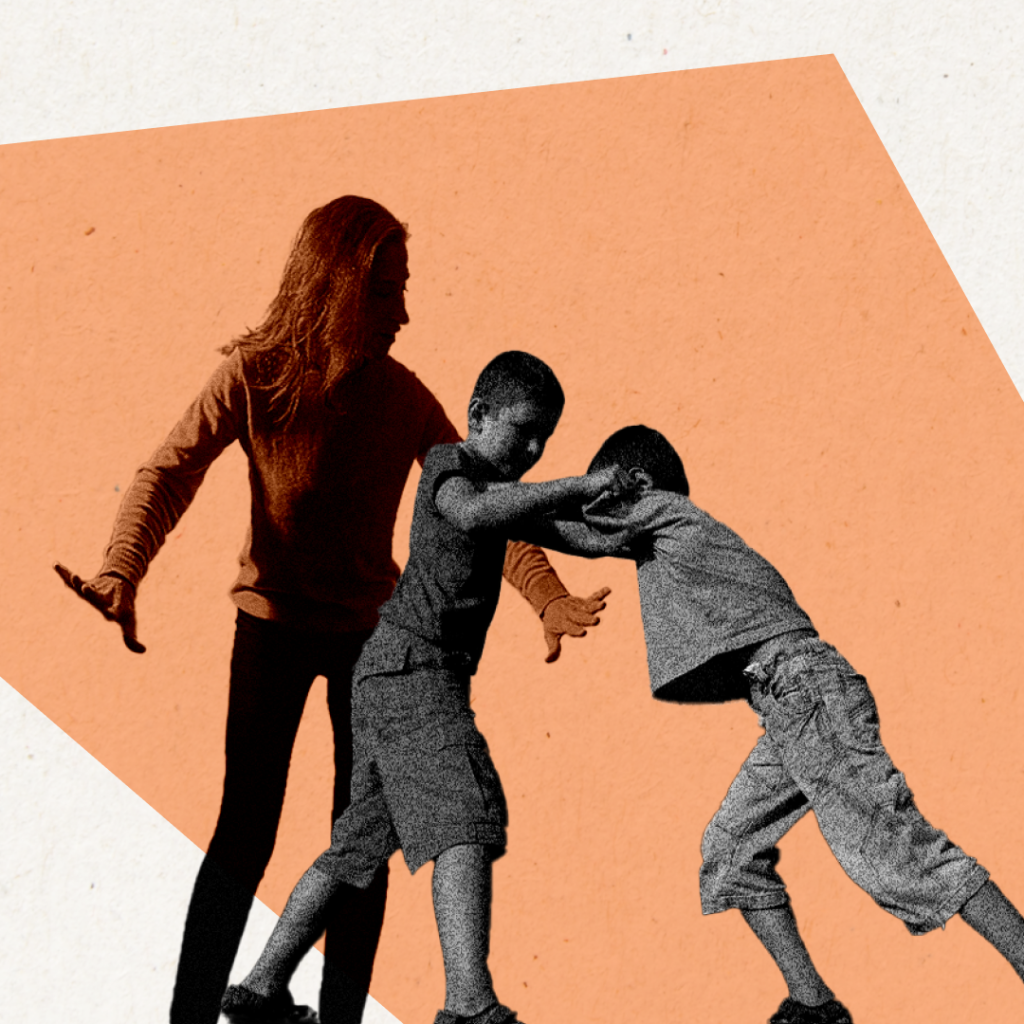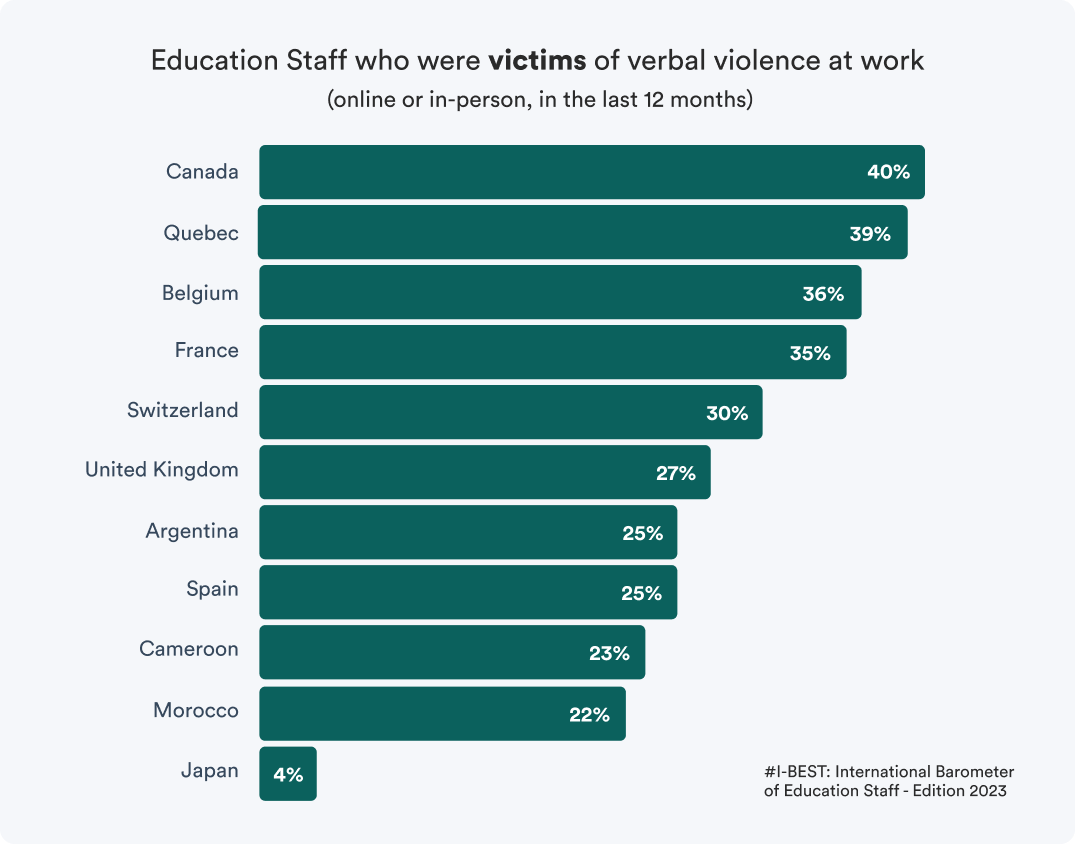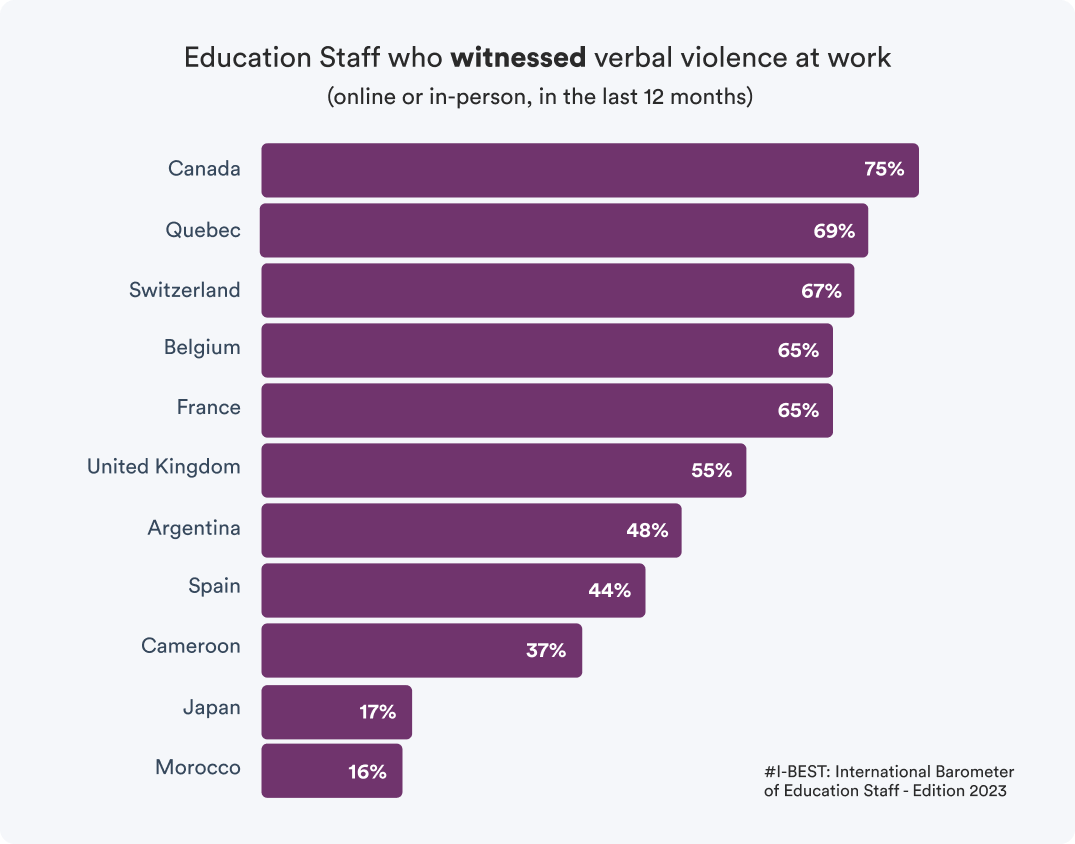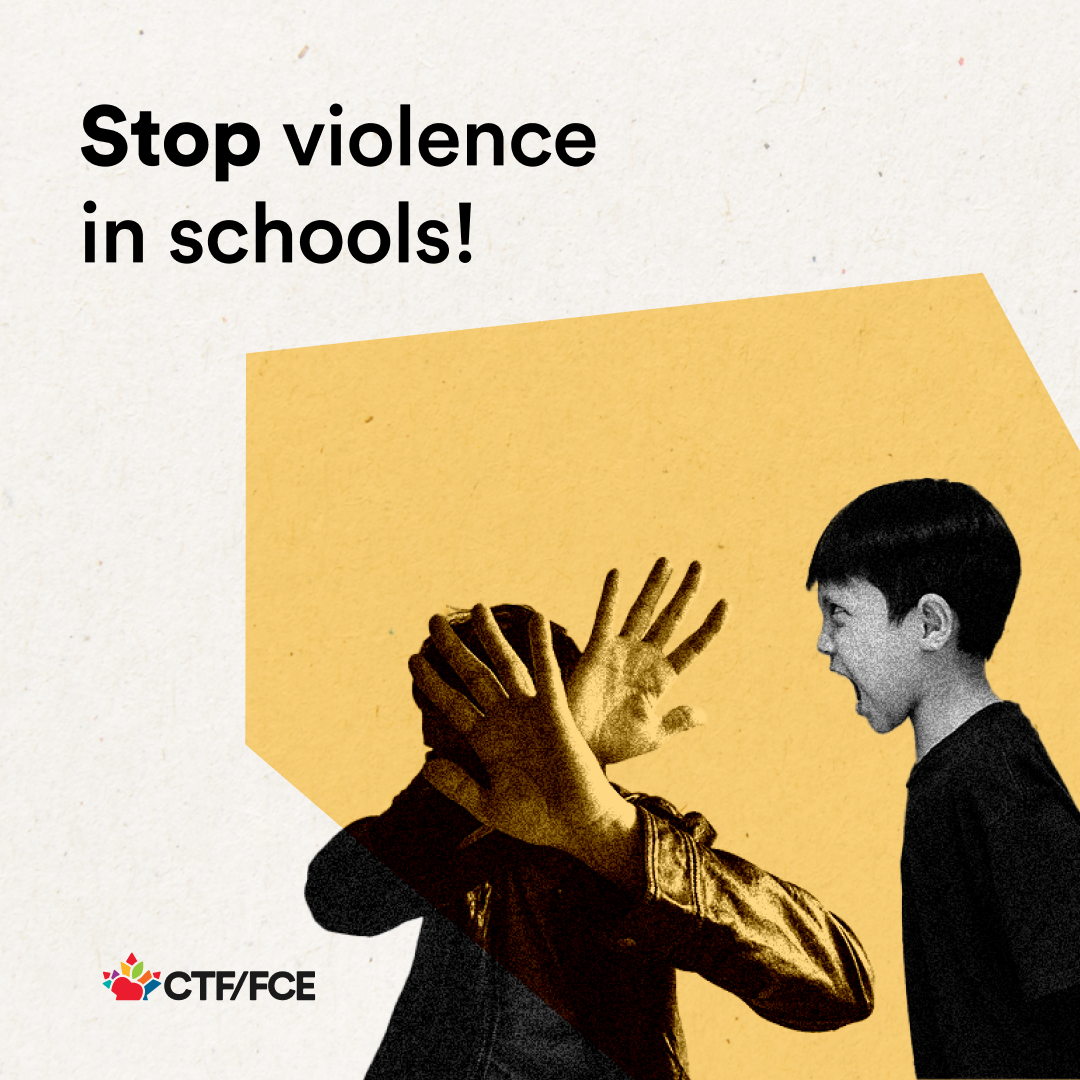Stop Violence in Schools

Together, we can make classrooms safer
Presently, there are two pieces of legislation moving through the House of Commons (Bill C-273) and the Senate (Bill S-251) that repeal Section 43 of the Criminal Code of Canada (Section 43).
43 Every schoolteacher, parent or person standing in the place of a parent is justified in using force by way of correction toward a pupil or child, as the case may be, who is under his care, if the force does not exceed what is reasonable under the circumstances.
If Section 43 is repealed without any other amendments to the Criminal Code that allow teachers to intervene physically when necessary to protect students and, in some cases, themselves, teachers will not be able to ensure safety and security in schools.
Take Action
Background
The sad reality is that prior to a Supreme Court of Canada decision in 2004, Section 43 had at times been interpreted as allowing for corporal punishment of children at school in Canada Also, the Truth and Reconciliation Commission (TRC) of Canada included repealing Section 43 in Call to Action #6 due to the abuse and genocide experienced by Indigenous communities in the Residential School System. The CTF/FCE fully supports all TRC Calls to Action.
If Section 43 is repealed without any other amendments to the Criminal Code that allow teachers to intervene physically when necessary to protect students and, in some cases, themselves, teachers will not be able to ensure safety and security in schools. Physical intervention is sometimes required to manage situations such as breaking up a fight between students, stopping a student from running into a busy street, preventing a student from harming themselves, or a teacher protecting themself from harm. However, if Section 43 is repealed without protective language elsewhere in the Criminal Code, then all these actions could be charged as assault. To address this issue, the CTF/FCE has drafted protective language with legal counsel which will provide safeguards for teachers and students while still adhering to the TRC Call to Action to repeal Section 43.
The CTF/FCE has also consulted with the CTF/FCE Advisory Committee on Indigenous Education (ACIE), a committee comprised of Indigenous educators in Canada. The ACIE advises and reviews CTF/FCE work related to Indigenous education and Truth and Reconciliation efforts. The CTF/FCE sought their guidance regarding the repeal of Section 43. The ACIE supports the CTF/FCE’s position and feels confident that there needs to be protective language for teachers to keep classrooms safe.
In January 2024, the CTF/FCE partnered with Abacus Data to poll Canadians on issues related to public education. The poll aimed to gather insights on violence in the classrooms, and the results confirmed that Canadians are aware of this issue and support the CTF/FCE’s position.
86% of respondents agreed that they are concerned about the increasing level of violence in public schools. Similarly, 86% of respondents agreed that teachers and staff should have the right to intervene physically if needed, in cases where students are physically violent towards another individual.
Tune in to learn more
To learn more about the history of violence in schools, recent research, the causes, link to teachers leaving the profession, and more, tune in to our first episode of our new podcast series, ABSENT.
To learn more about the rise of violence in Canadian schools, possible solutions, what the CTF/FCE is doing to advocate about the issue, and more, tune in to episode 2 of our new podcast series, ABSENT.
Research


(Source: https://www.educationsolidarite.org/wp-content/uploads/2023/09/IBEST23-Info-international-EN.pdf)
In an international study, over the past 12 months, 40% of Canadian respondents have been victims of workplace violence – This is the highest among all 11 participating* countries.
*The International Barometer of Education Staff (I-BEST) is a biennial survey affiliated with Education International that surveys education staff of participating countries around the world on working conditions, well-being, and health. The 2023 edition surveyed 11 countries and territories across 4 continents, including Canada, France, Spain, United Kingdom, Switzerland, Belgium, Argentina, Morrocco, Cameroon, and Japan.
Testimonials
“I’ve witnessed [violence] more regularly in the last few years than I did in the past.”
Member of the CTF/FCE Advisory Committee on Indigenous Education
“[It] was a really big concern for me last year being pregnant and just knowing that the violence is escalating in the classrooms.”
Elementary school teacher
“If we have no legislation to protect [teachers and education workers], then teachers would have no way to stop [the violence] for one thing. We would only do like a reverse evacuation and basically let that student wreck the room, which is happening now.”
Member of the CTF/FCE Advisory Committee on Indigenous Education





